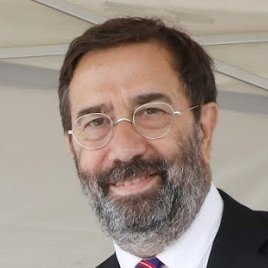In April 2017, Sarah Halimi, a 65-year old Parisian Jewish woman and retired kindergarten director, was savagely beaten and thrown out of her apartment window to her death by Kobili Traoré, her Muslim neighbor. During the 30 minute attack, Traoré yelled verses from the Koran and screamed “Allahu Akbar.” Yet this past April, France’s highest court of appeal ruled that Traoré, who regularly smoked cannabis, had been experiencing a “psychotic episode” at the time of the attack and would not stand trial for the brutal murder, but instead remain in a secure hospital.
Writer: Mr. Robert Ejnes

Director of the Conseil
Représentatif des Institutions
Juives de France (CRIF),
(Representative Council of
French Jewish Institutions),
the official French affiliate of
the World Jewish Congress
(WJC), the worldwide umbrella
organization of Jewish
communities, and of the
European Jewish Congress.
How did the Jewish community of France react to the court’s ruling in the Sarah Halimi case? Do you believe the court’s ruling was antisemitic?
The Halimi Case is a long and complex judicial story. Sarah Halimi was murdered by being thrown out of a window on April 4, 2017 by a Muslim fundamentalist. The murderer was immediately arrested but put under psychological surveillance. For several months the judge hesitated to label the killing as antisemitic. The assailant was declared to be not criminally responsible when the judges ruled the murderer was undergoing a psychotic episode due to cannabis consumption, as established by three independent psychiatric analyses.
The final decision was made by the highest French Court, the Cour de Cassation, which confirmed the previous decision,so the assailant will not be judged for the crime of murdering Sarah Halimi.
The Court ruling was based on legal principles, but while the judges can be justified within the technical letter of the law, they did not serve justice to Sarah Halimi and to the Jews of France.
President Emmanuel Macron criticized the court’s decision and made statements in support of the Jewish community. Did the President’s response reassure you?
To his credit, in the Sarah Halimi case, President Macron called for justice.
President Macron, together with the rest of the government and most of the political leaders of France, are supportive of the Jewish community. The Jewish communal buildings are secured with the assistance of the Ministry of Interior and Jewish synagogues, schools, and events are protected by security forces. The Jews are threatened by terrorists more than other French citizens. The president and the government understand this, and this is meaningful to our community.
How has the ruling impacted the Jewish community’s sense of security in France?
The fact that the antisemitic crime of Sarah Halimi went unpunished leads essentially to a loss of trust in the French Judicial system.
Since the recent wave of antisemitism in the 2000s, Jews have felt a greater sense of insecurity in France. Reports established by the security service of the Jewish community together with the Ministry of Interior show that antisemitic threats and attacks against French Jews are increasing. Surveys show that 90% of Jewish students in France have been bullied or attacked.
This is especially true in the outlying suburbs of the major cities, the “banlieues.” These areas have been described as the “lost territories of the Republic” according to a book first published in 2002, which showed that Jewish children had to leave the public school system in some of these areas.
Jews may not feel threatened in the streets, but nonetheless we share a feeling of insecurity in France.
In the wake of the Halimi trial, what do you believe lies ahead for the Jewish community of France?
Jews have lived in France for more than 2000 years. They have survived being expelled from France in the Middle Ages, the Dreyfus affair of the 19th century, the Vichy regime of the Second World War and the Shoah.
They also remember that France was the first country to give Jews emancipation and full citizenship in the modern era. Globally, Jews have a very long history in France and feel very attached to the French Republic and to its culture and history. Jews have also very extensively contributed to the Republic. There are many new home constructions in Jewish areas, a sign that many Jews believe they have a future here.
At the same time, French Jews are very close to Israel. Most Jewish families in France have relatives in Israel, visit Israel very often (when they are not prevented from doing this because of the Coronavirus), and about 2,000 Jews make Aliyah from France each year. (Editor’s Note – this is around 8 times the rate of American Aliya. per capita) However, Aliyah numbers jumped to close to 8,000 per year from 2013-2015 after the Toulouse killing, when a Rabbi and three children were murdered in a Jewish school in another anti-semitic attack.
What will be the future of the 500,000 Jews in France? Only G-d knows.
